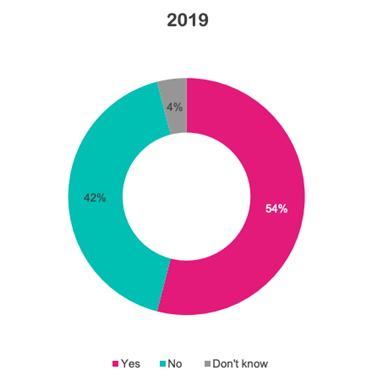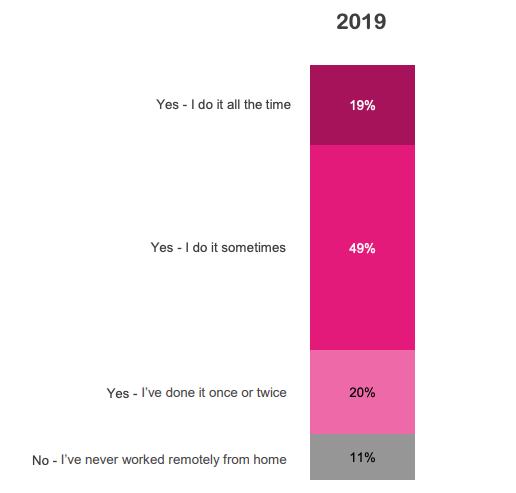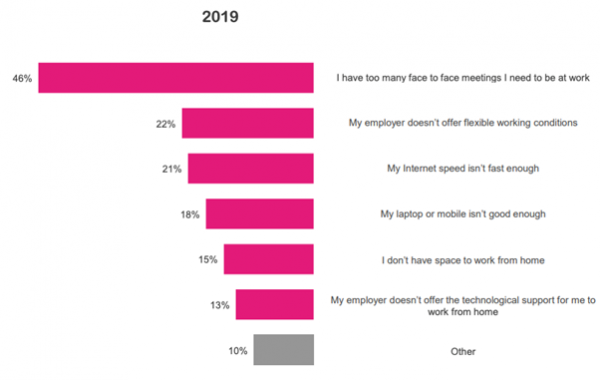COVID & the Internet - where to next?
Andrew Cushen Engagement director •
This is the start of a short series of blog posts where I’ll share with you some of my thoughts about what our life could look like in light of what we are learning from COVID-19. There’s a lot of disruption already to how we live and work, and that creates new opportunities for how the Internet could make new and better things a reality for all of us in New Zealand.
COVID is forcing many of us to work from home using the Internet
One of the big, obvious differences for most of us during the lockdown was that we were forced out of our offices and to work from home - and yes, it was a bit weird. It certainly took me a week or so to get into the groove of working in the spare bedroom rather than at the office. Things worked out well once I was settled in though. I was productive, perhaps even more so. I had to be deliberate about conversations with colleagues to get things done like we used to. The kitchen was sadly only a few steps away, but I offset that with a lot more exercise. All things considered, life was pretty good.
My experience matches that of many other people I’ve spoken to - that working from home was less of a disruption than many of us thought. That isn’t universally true of course; many people have jobs that simply can’t be done outside of the workplace, but a lot of people do have work that is able to be done independent of the workplace. This got me thinking about why those behaviours, and a seeming reluctance to embrace working from home, have been so sticky, and why New Zealand hasn’t realised the opportunity to liberate work from the workplace.
After all, we have had some of the most important building blocks in place for a while; high speed, high-quality, and high reliability to most New Zealanders thanks to the ultra-fast fibre build. For the first time, most of us have the ability to connect to our work lives from our home in a rich, meaningful and productive way.
Working from home was too hard for many people before COVID
We’ve been researching these questions over the last few years at InternetNZ, and here’s what our data shows. This all comes from our long-running Internet Insights research of 1,000 Kiwis:
This first chart shows that 54% of us have the chance to work from home. Not a bad start. The 42% that say no could be for a wide variety of reasons - we will come back to that later.

This next chart tells us the degree to which people who have the opportunity - the 54% above - take advantage of it. And we start to see the story change here, with the majority of those who can work from home only doing so sometimes or less.

And this third chart has always fascinated me, as it talks to the reasons why people can’t work from home more often. In particular, the standout responses for me are the “My Internet speed isn’t fast enough” at 21%, “My employer doesn’t offer flexible working conditions” at 22%, “My laptop or mobile isn’t good enough” at 18%, and “My employer doesn’t offer the technological support for me to work from home” at 13%.

COVID is forcing choices and changes, and that’s made working from home more workable
I highlight these ones because they all strike me as relatively easily solved. They all boil down to either employer attitudes or investment in the equipment necessary to make it work. I also wonder, too, if these stories changed dramatically during the lockdown. Was that the catalyst we needed to solve some of these hitherto hard to change choices that were being made?
Here’s my theory; the COVID-19 lockdowns are forcing a change in attitudes and resolving many of these easily fixed points. I’ll find out whether my theory is right when we repeat this research later on this year. In the absence of this hard data, I do have some evidence that suggests I might be right. For example:
- Stuff reports that traffic volumes in all our major centres was significantly down on the year previous
- NZHerald reporting on changes to corporate behaviour in the immediate post-COVID phase
- And another from the NZHerald, talking about how some large corporates are taking the plunge and embedding work from home in their practices from here on.
A change is happening. I believe that working from home, enabled by the Internet, is here to stay for more New Zealanders. As a result, traffic is down, infrastructure demand for roading is down, utilisation of Internet infrastructure is up. Yes, I’m slightly frustrated that this change could have happened years ago, but perhaps this is one silver lining on the cloud that is COVID that it is finally happening now.
What could happen next to make the most of the Internet and change how we live and work in New Zealand?
Now that this change is happening, I wonder if there’s a further opportunity from here. What if we made a deliberate decision to liberate people’s working lives from geography, and embraced the Internet as a way of distributing a workforce from everywhere? After all, what we’ve seen in the last wee while is that having an office on Lambton Quay and working from the Hutt Valley is no longer so much of a problem; that you can have a job based in Dunedin North and do it from the Kaikorai Valley. What really is the difference then from moving away from those cities all together, and doing that Auckland-based job from a house near the beach in Gisborne, or near the wineries in Marlborough?
Imagine that life, where we could liberate ourselves from the challenges of geography, house prices and traffic and instead go work in those wonderful places that we wish we had more time to go to. The Internet infrastructure is available and it is world class for most - 75% of households already have fibre, and 87% will do so in the next few years. Then there’s better mobile connectivity for many more after that. Most of the places you “might rather live if you could just get a job there” could be places where you do your current job instead.
That might be a wonderful life for many of us, and better for everyone regardless. A life where many of us can choose where we live separate from where we have to work. A life where those that remain in the large cities have less traffic, less crowding, and more time, too. A life where we can live by the beach and still do that big city job, without the big city mortgage attached to it.
We’ve seen just how achievable it could be thanks to the choices and challenges we all addressed during the COVID lockdowns.